
I haven’t yet recovered fully from the jet lag brought upon the time difference between home and Fiji, but it hasn’t stopped me from processing a lot of the information and stories and experiences I had while traveling throughout the various islands (you can read my feature on Huffington Post Travel which I wrote for Findery, as well as more on Falling in Love with Fiji on my piece for Expedia Viewfinder).
These articles will tell you all about my journey, my favorite hotels, the different islands, so make sure to check them out. Here I wanted to tell you about the Fijians and share something that many whom I spoke with wanted me to pass on in my writing about their country.
It was a hectic trip. I moved around almost daily, from island to island. I visited a lot of resorts, all as different as the islands themselves, but I also made great strides to connect with the people though often time these were limited to the staff I met in the hotel.
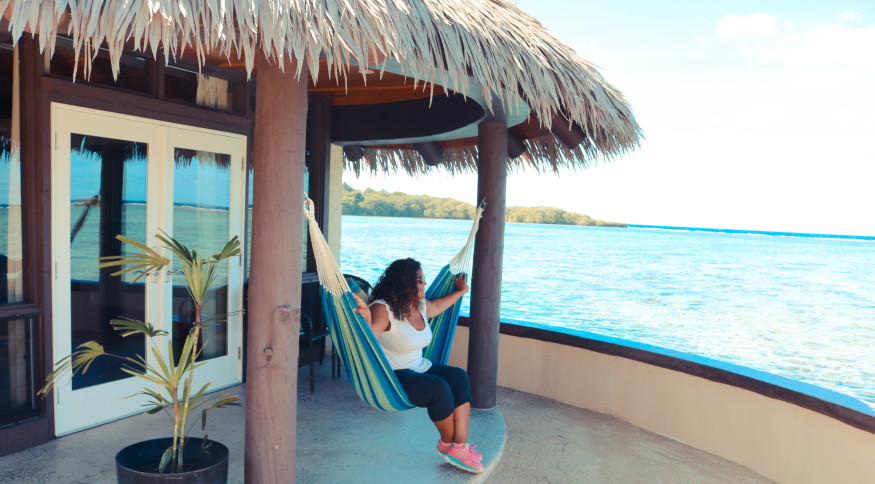 Even with a full schedule I found connecting with the locals so easy and natural.
Even with a full schedule I found connecting with the locals so easy and natural.
As a woman of color and as an American there are so many things about the people and culture that fascinated me. For example, I learned that the black population in Fiji are descendents of warriors from Tanganyika, East Africa. How they came to be in Fiji is unclear, but one thing that was made very clear to me: they did not arrive as slaves. Never in the history of Fiji have blacks, who proudly claim their African ancestry, did they serve as slave to anyone, not even the British colonizers.
In fact, I was told, the colonization of Fiji was based upon an agreement between the Fijian chiefs and Britain. The Indian population has a different story, as they were brought to the country, many against their own will, by the British to work the sugar fields.
I also learned that for Fijian woman natural hair is a standard of beauty. They wear their afro, their natural hair, very proudly. Many men have as well. At first I thought it might be due to some sort of religious belief or traditional custom, I am so conditioned to the idea that natural hair is not so freely accepted. But I was wrong. This style, this look, is a personal choice, admired by both men and women a like.
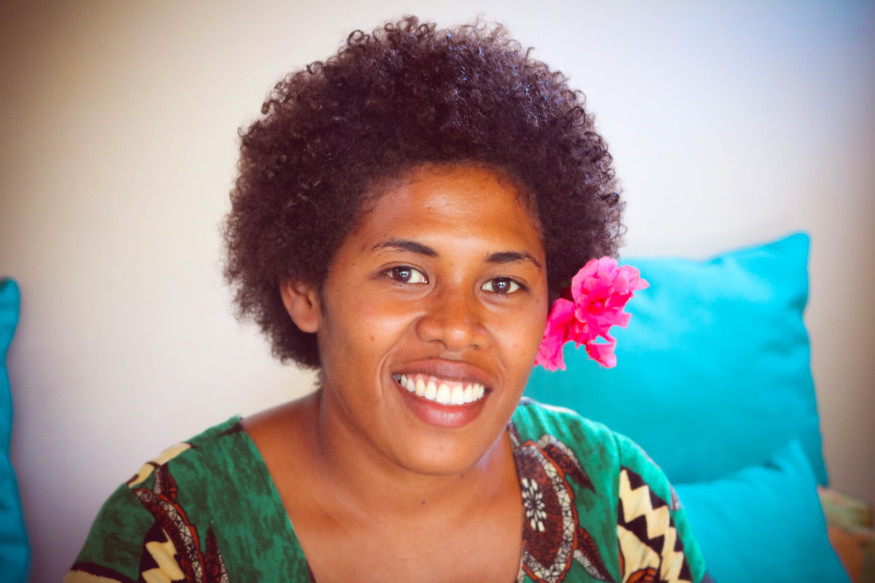
Though some lamented how younger generations are beginning to feel the influence of the Western world and the standards set before them in the media, many others both young and old stated that they continue to talk to women in their communities about the Fijian beauty and the power of identity conservation and pride.
These two things were the very first I noticed upon arriving to Fiji. It left me so impressed and so curious that I never wanted to miss up an opportunity to learn more.
I will confess that a great part of my approach with the Fijians was around the fact that I too have island roots. Granted, my family comes from the Caribbean, but to look at the Fijians I could easily mistake them for one of our own. Same was the case for them with me. Several times the question of where I was from was surrounded with the curiosity of whether I had Fijian roots.
There was a sense of camaraderie in my being brown. Yes, this was something that was expressed to me in several occasions as being “wonderful”, “cool”, and even “comforting”. As one Fijian expressed, “We feel a sense of warmth and unique welcome towards those who look like us, like family.”
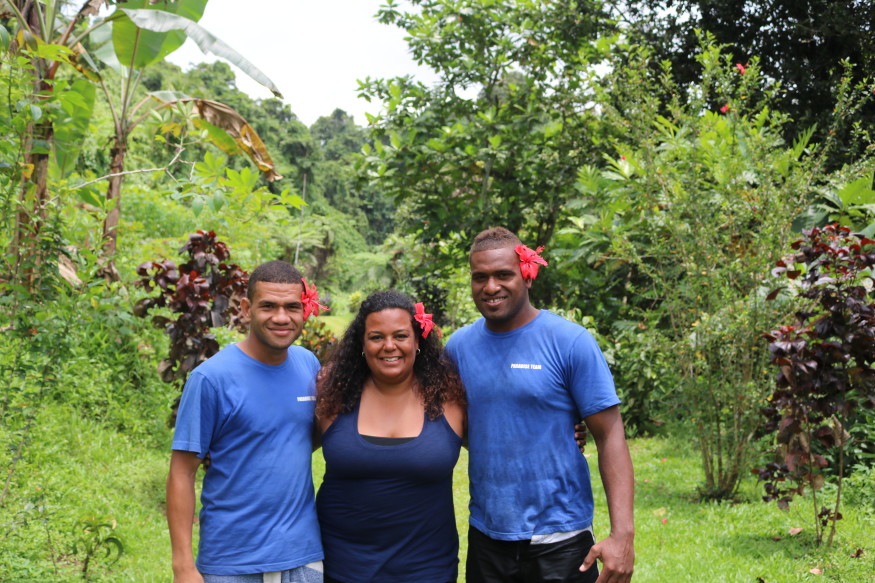
Yet, I won’t say that the color of my skin is what made the Fijians kind towards me. This hospitality is something for which the people of Fiji are known for. Anyone who has ever visited will tell you how welcoming and friendly everyone is.
And, I was still a foreigner. Making friends took a lot of late nights of kava drinking and talking. Kava, by the way, is not my favorite but I recommend that when in Fiji if invited to join in on the social and often ceremonial occasion, that you consider taking part.
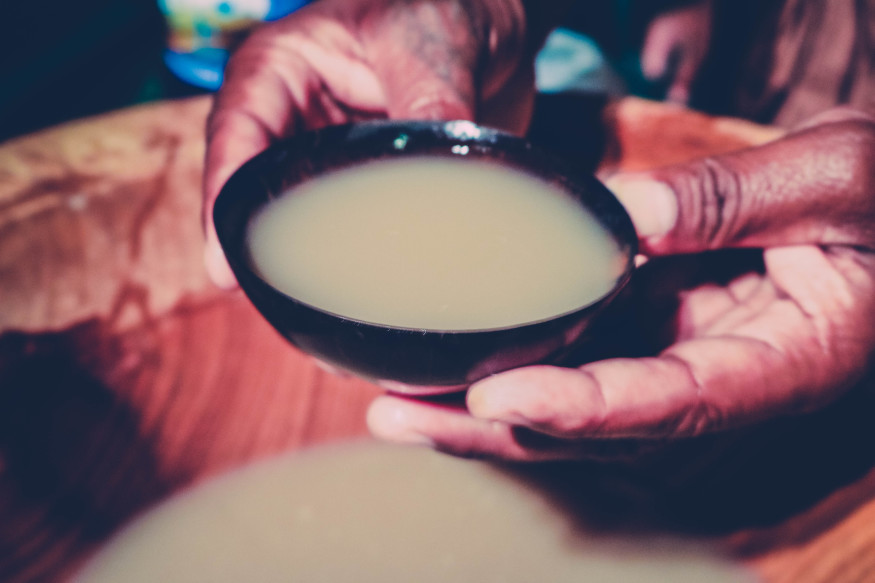
Though I am not a religious person and only really enter churches to admire their architecture, I took some time during my visit to join in on a Sunday service being held in the community where I was staying at the time.
I didn’t understand much of what was said as the service was mostly in Fijian but there was a moment, towards the end of service prayer, that a woman came up to me and put her arms around me as she prayed. I am not sure why this made me tear up, but I did. Maybe it was the welcoming spirit.
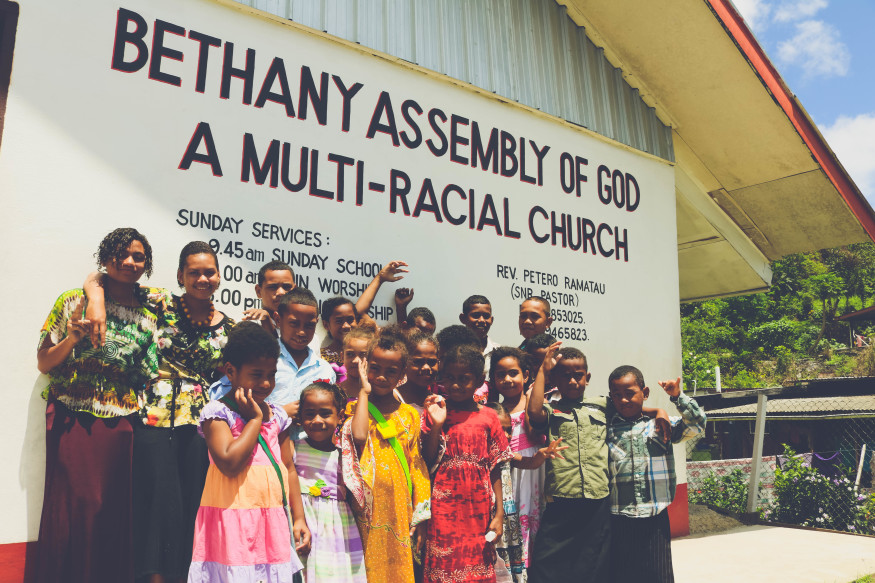
The next day while walking around, I would come upon a local who had seen me at church the morning before and they would greet me like a sister or a very close friend. They would ask me about my life back home, whether I had children, if I was married, about my work, where I had been too, where I came from. Then, they would invite me to return and come back to visit their village and bring my family to join theirs for dinner.
Every question I had they would answer with patience and great pride. I felt as if each word was a gift, a special token being shared.
And I would end most of my conversations with the question, “What would you like me to tell others about Fiji?” and the response was almost always the same.
What Fijians want you to know is that their country is more than just beautiful sunsets and beaches, luxury resorts and enviable diving. Fijians are proud of these things and are happy to share them with the world, but they want visitors to take the time to learn about their culture too, the history of their people, and most of all the various work many Fijians are doing in areas of conservation of their traditions, natural lands, and resources.
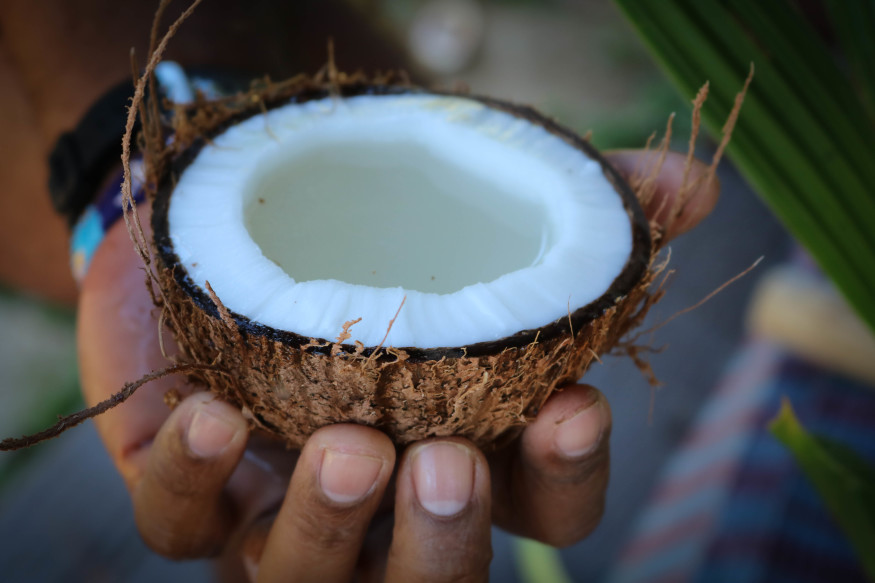 Ask a Fijian to talk to you about the coconut and what it means to them, and you will be enriched with a ton of wonderful information on what they refer to as “The Tree of Life”.
Ask a Fijian to talk to you about the coconut and what it means to them, and you will be enriched with a ton of wonderful information on what they refer to as “The Tree of Life”.
This is important for them, many said, because if you take the time to learn, to ask the questions, and to see beyond the touristy perks so readily available to all, then you will find a deeper love for Fiji and with each visit, you too will take time to conserve and care for their land, break down generalizations and broaden an understanding of a people, a heritage, and the very many cultures that make up this country.
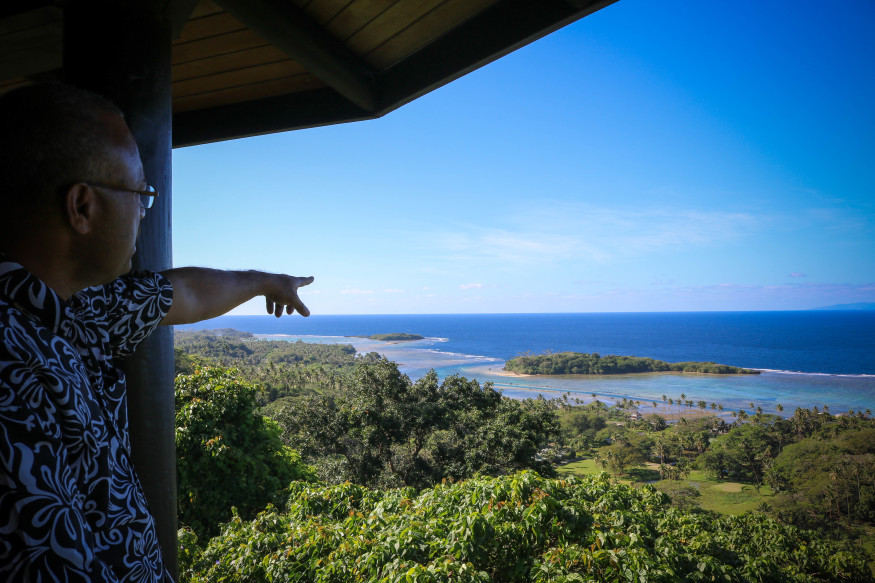 Ask any Fijian, regardless of their capacity, whether a hotel manager, a tour guide, a taxi driver, or waiter, about their country and you will walk away enriched with stories.
Ask any Fijian, regardless of their capacity, whether a hotel manager, a tour guide, a taxi driver, or waiter, about their country and you will walk away enriched with stories.
There are details that are getting lost, that elders are finding harder and harder to pass down to younger generations. But the Fijians believe that progress, which they wholeheartedly embrace, doesn’t need to erase tradition and they know that our support of those traditions will help them to keep them alive.
So, before I went on and on about all the incredible resorts, the luxury stays, and the breathtaking sunrises and sunsets that I experienced during my time in Fiji, I wanted to pass along the message that they entrusted me with in the hopes that it will be one you will carry in your heart when you visit.
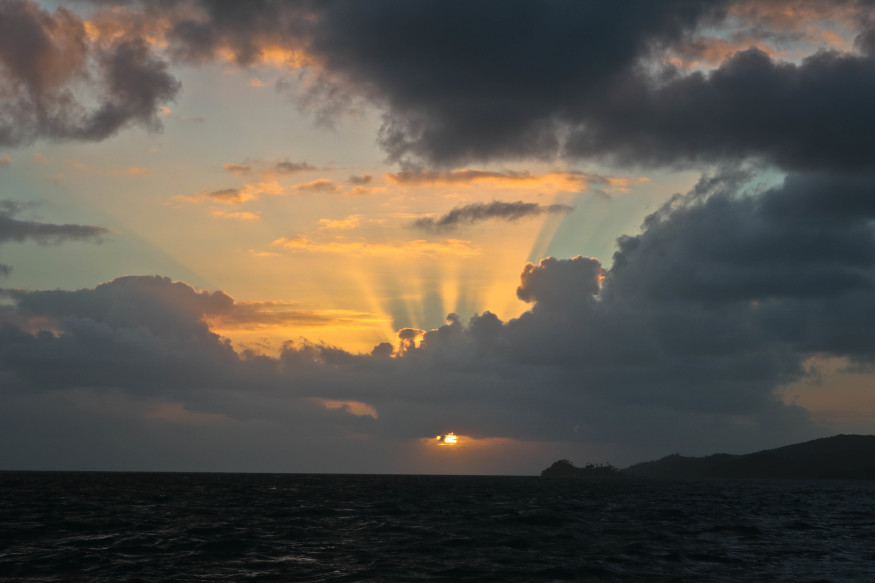 The sunsets are amazing, but they are not the most beautiful thing about Fiji.
The sunsets are amazing, but they are not the most beautiful thing about Fiji.
Because when it comes to islands, I have seen many beautiful ones, but few are so true to themselves as the people of Fiji, and even fewer give of themselves so authentically and fully.
My heart is full from the warmth and affection from those who claimed me as their sister and welcomed me as one of their own. To them I say thank you for sharing your home with me.
If you want to see what I was up to while there, check out my Instagram (@GirlGoneTravel) with hashtag #GGTinFiji.
I visited Fiji as a guest of Tourism Fiji. All opinions are my own.


Hayley McKinnon
I love this! Fiji is my favorite place, and the people are the most happiest and kindness people I have ever met! This posts makes me miss it so much! I did a post over on my blog all about the people of Fiji. It would be great if you checked it out, and let me know what you thought!
caincarol
Hayley McKinnonHi Hayley! Thanks for letting me know. I\’ll make sure to stop by your blog and read it : )
Solo Female Travelers Over 40 - World Travel Around
[…] Read: From the People of Fiji, With Love […]
Gloria M
I love Fiji as well. I was surprised about the East Africa connection. It’s a topic I will have to research further. Also I believe the indentured laborers from India were brought to Fiji to work the sugar cane fields is my understanding. Rice fields are non existent.
The love you have for this island shows in your article- esp liked the random blessing outside the church.
caincarol
Gloria MYou are correct! Sugar fields, my error! I do love it there, beautiful experience. Thanks for reading!
New Faces in Travel Writing with Carol Cain of Girl Gone Travel – Without A Path With Joe Baur
[…] Photo: Carol Cain […]
Huzefa
Wonderful post and really loved your logo. The knife, Globe and the plane represents creativity and different cultures 😉
Mary Charles
I would love to read more stories